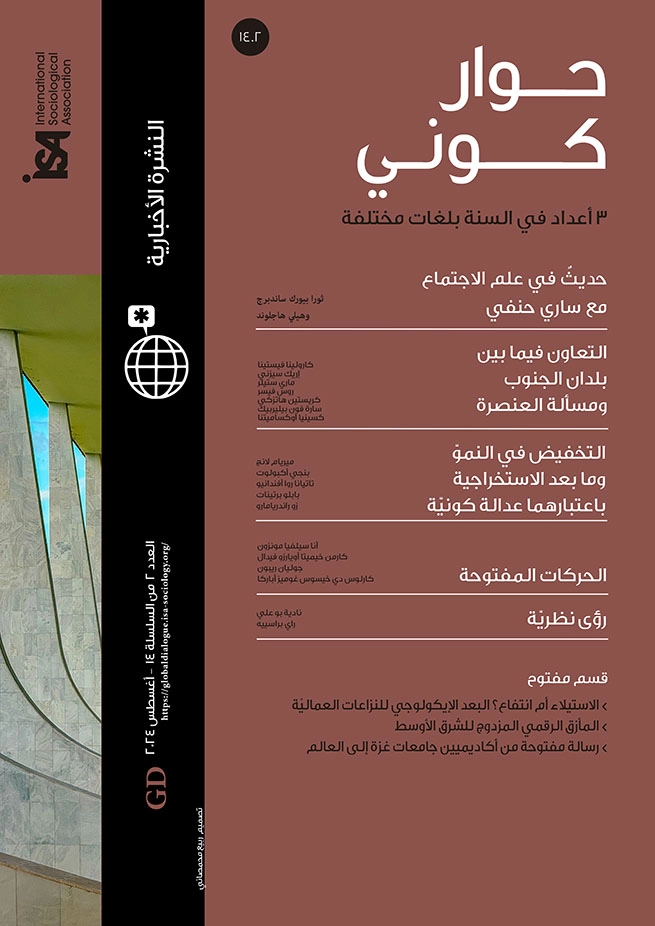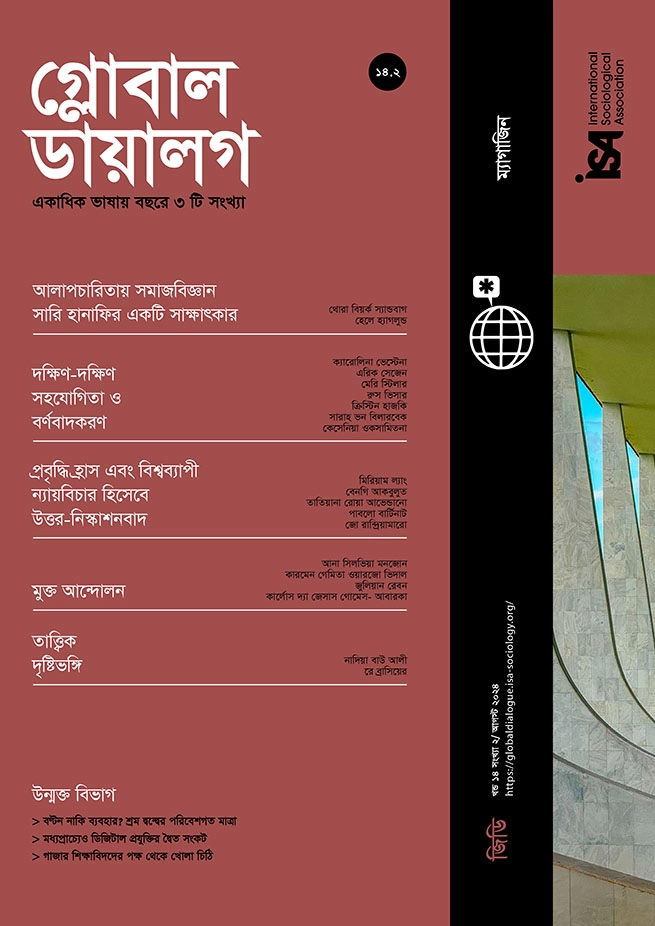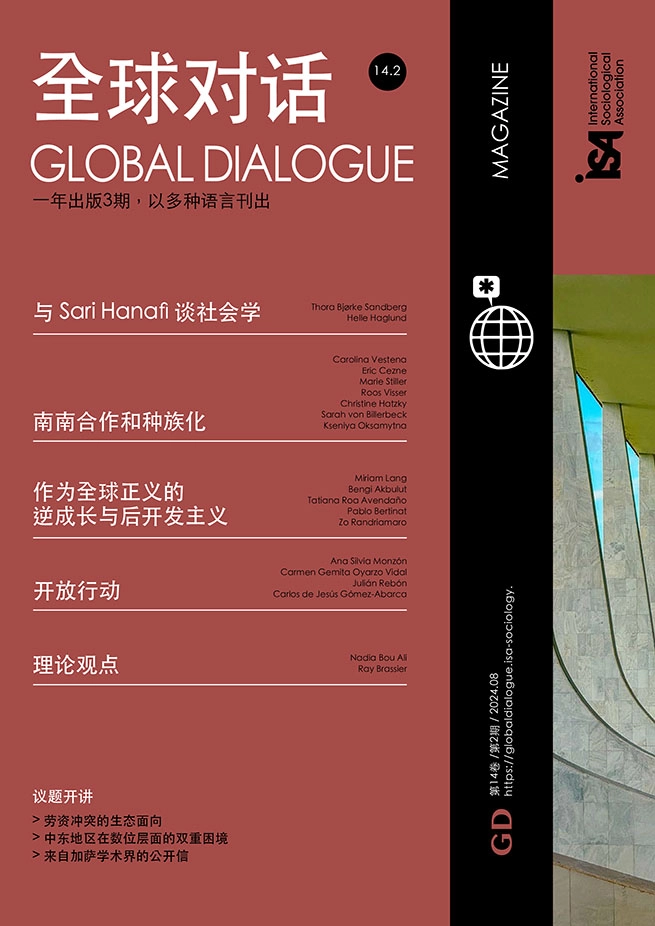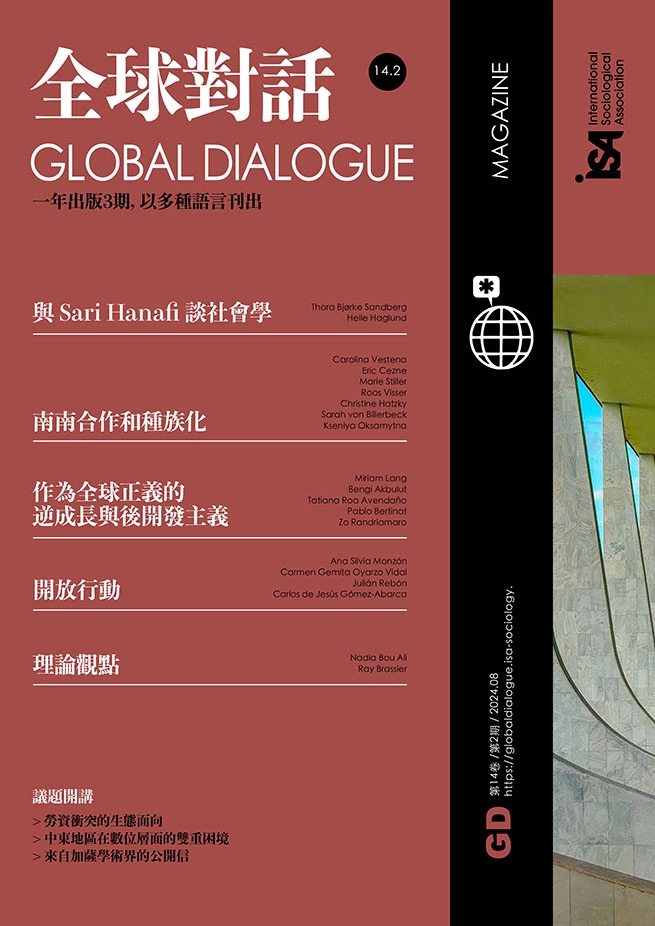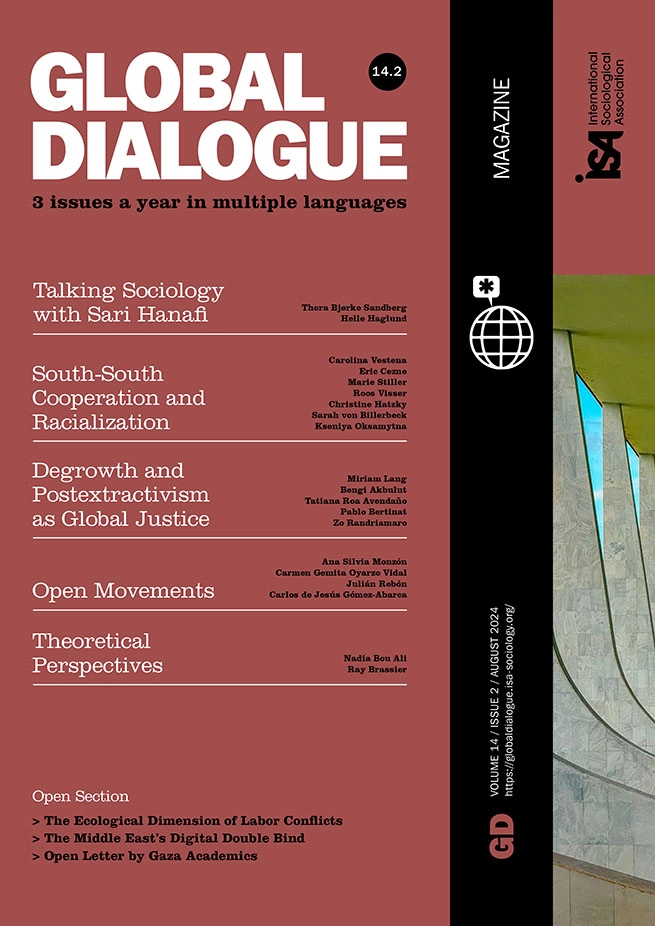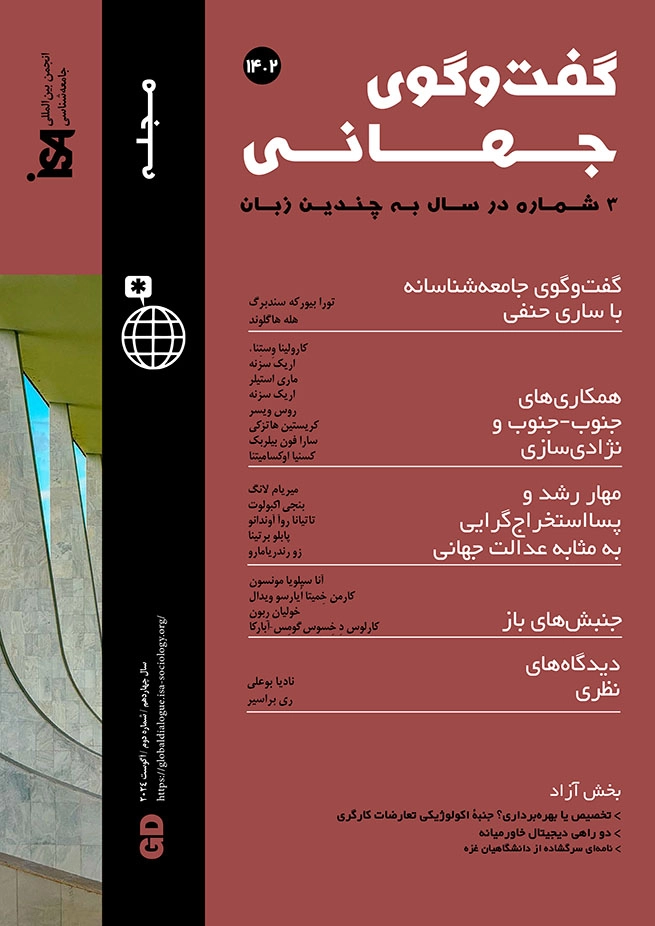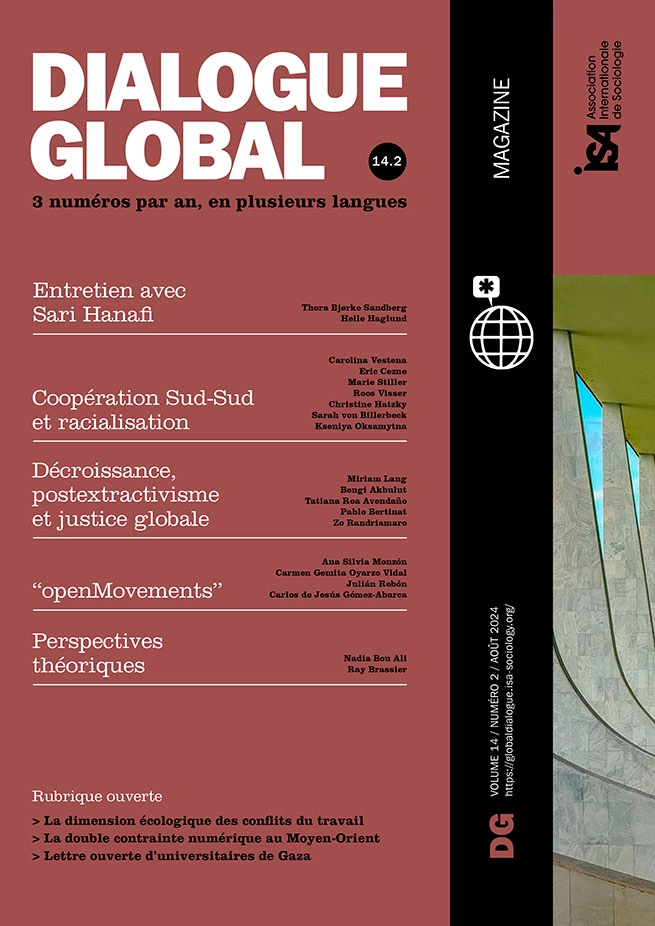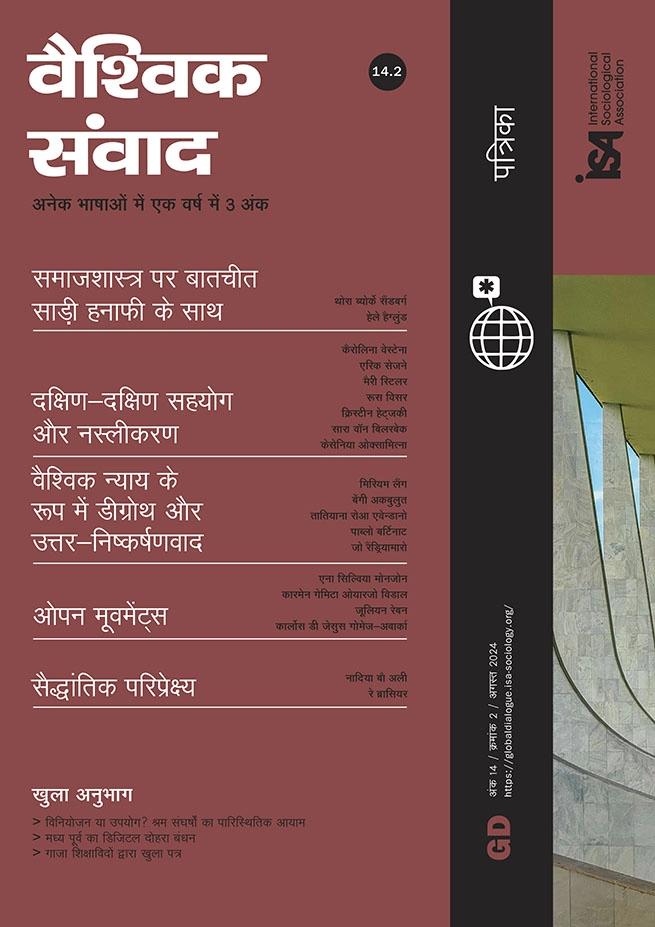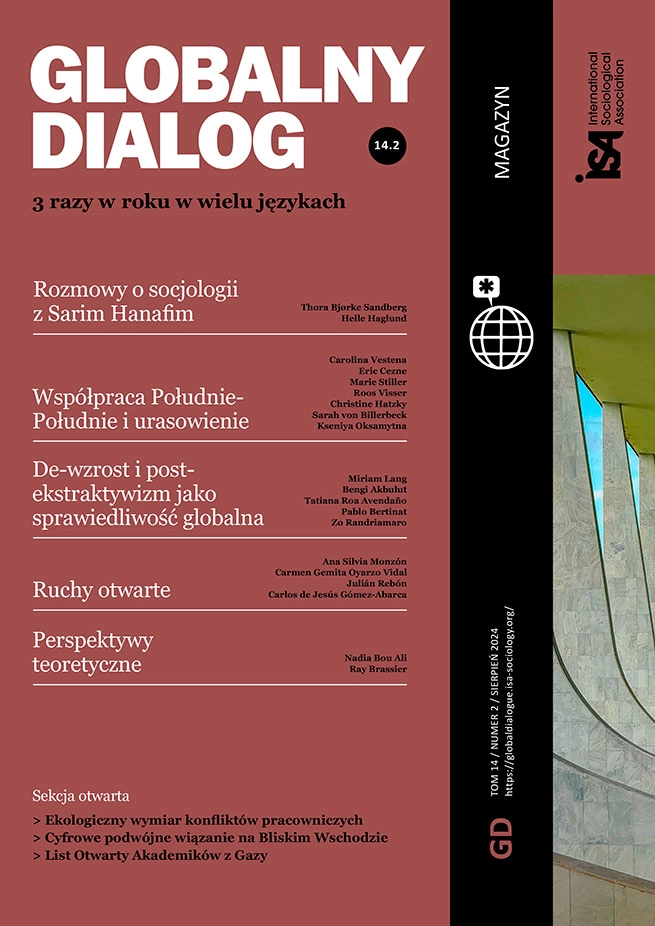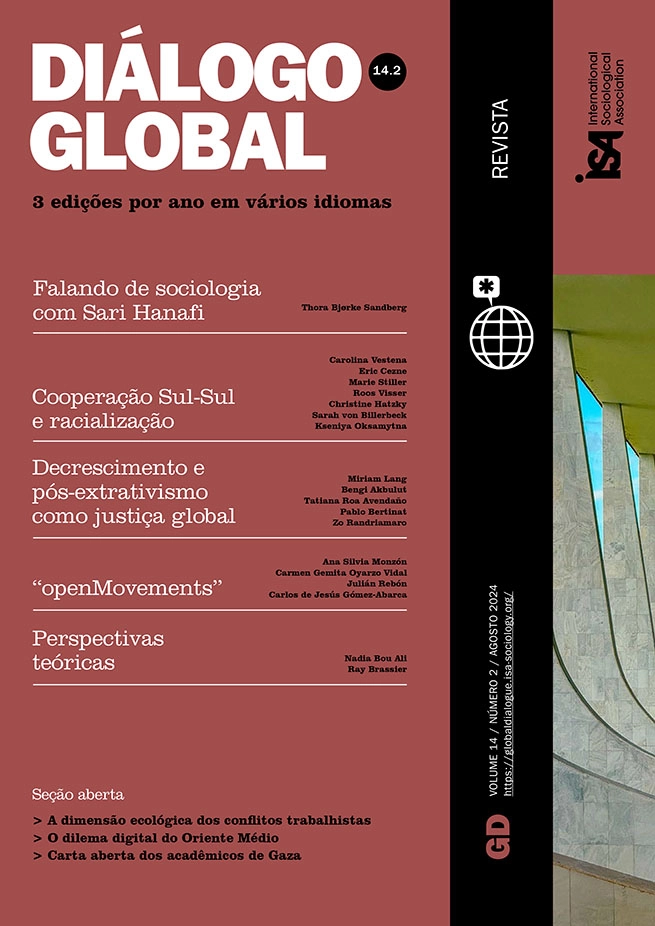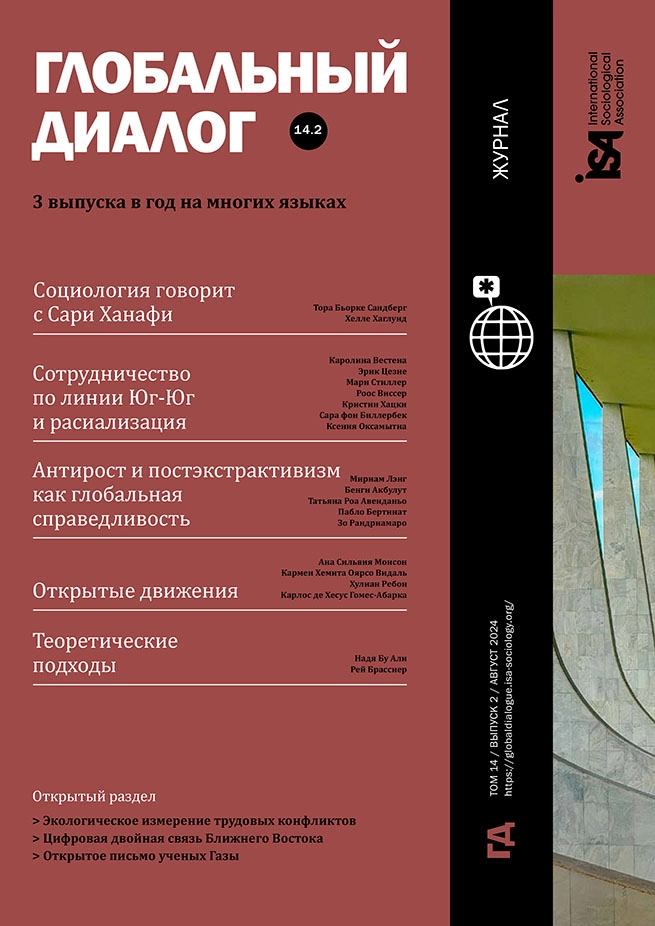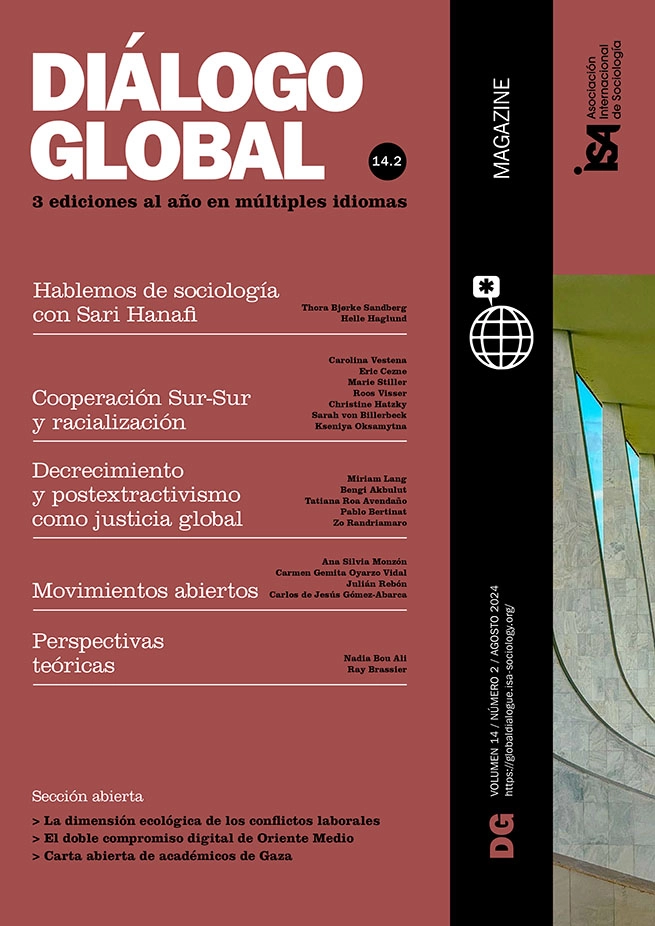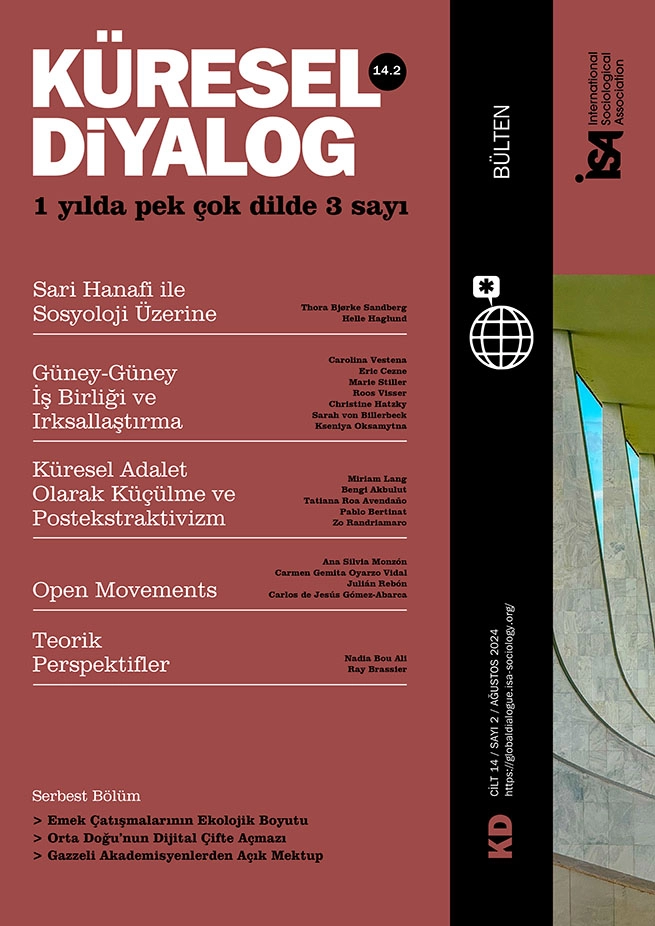The War in Gaza and the Responsibility of Universities An Interview with Sari Hanafi
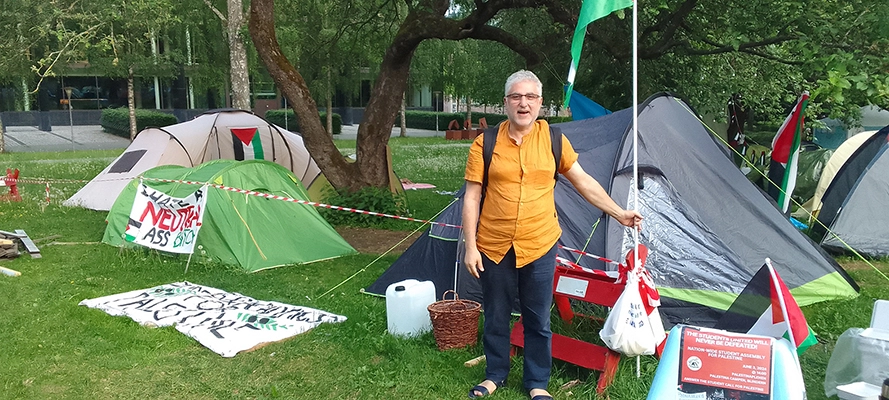
July 15, 2024
Sari Hanafi is currently a Professor of Sociology, Director of the Center for Arab and Middle Eastern Studies, and Chair of the Islamic Studies program at the American University of Beirut. He is a corresponding fellow of the British Academy and the past President of the International Sociological Association (2018-23). He is the author of numerous articles and books on the sociology of religion, the sociology of (forced) migration applied to Palestinian refugees, and the politics of scientific research. As a Syrian-Palestinian, Hanafi lived in Palestine when the second Intifada, the al-Aqsa intifada, occurred. He experienced firsthand what it is like to live under what he calls a spacio-cidal Israeli project. In this conversation, he presents his reflections on the ongoing war in Gaza, calls for an institutional boycott of Israeli institutions, and discusses some common interpretations in vogue today about the war, which he considers insufficient or mistaken. The interview was held in May 2024 by Thora Bjørke Sandberg and Helle Haglund, members of Sosiologen.no, an editorial project based in Oslo, part of the Norwegian Sociological Association, and supported by OsloMet, the University of Bergen, NTNU, the University of Oslo and the University of Tromsø.
Thora Bjørke Sandberg (TBS) and Helle Haglund (HH): Professor Hanafi, what were your immediate thoughts after the October 7 attack? Did it affect how you view(ed) the ongoing war in Gaza?
Sari Hanafi (SH): The war started in 1947 and continues into different episodes. I see the Palestinian October 7 attack as part of this protracted process of colonization and of resistance to this colonization. Mainly since 2000, when the Israeli, whether government or public opinion, decided not to implement the Oslo peace process, engaging in crushing violently the second Intifada, the occupation of the West Bank and the siege of Gaza Ghetto have been so ugly (according to UN statistics, the death toll of Palestinians killed by the Israeli army and the settlers is 21 times higher than that of Israelis, to which should be added land dispossession, expansion and mushrooming of illegal settlement, etc.) that why should we expect Palestinian resistance to be beautiful? Sociologically, this is wishful thinking. Yet, as a sociologist who thinks about his social and moral responsibility, I need to take a position. Some have used the history of Israeli violence in the region to exonerate Hamas.
In contrast, others argue that demanding a moral balance from Palestinians – whose very lives are at stake – is unjust. But perhaps the reluctance among some of us to pass moral judgments on the actions of Hamas is because we don’t know how we would act or react if we were living in a concentration camp under the same horrendous conditions. It is ultimately my view that any attack that does not discriminate between civilians and combatants must be condemned. But I certainly do not condemn the right of the colonized to resist the colonizers by violent means.
TBS & HH: The University of Oslo recently said no to an academic boycott of Israel while at the same time condemning all violations of international law and demanding an immediate ceasefire and a halt to the attacks against civilians in the Gaza Strip and Israel. What are your thoughts on stances like this one?
SH: I would ask scholars and academic institutions to elevate their social and moral responsibility. I do believe in the moral obligation to carry out an institutional boycott against any institution that has a relationship with colonial or authoritarian powers, but not at the individual level. I would call for boycotting not only Israeli institutions but also Syrian universities. The idea of an institutional boycott is often used in liberal democratic countries, yet when it comes to the Israeli case, these countries are reluctant in the name of academic freedom. The European institutions have always been doing this; remember the boycott against the Russian institutions after the invasion of Ukraine and before that, against the apartheid regime in South Africa. I remember a Palestinian colleague from the Palestinian Central Bureau of Statistics who was supposed to participate in an academic workshop in 2008 at the European University Institute in Florence. The invitation was suddenly rescinded two days before the date of the workshop, as Hamas, at that time, won the election, and the workshop was funded by the EU. In my own university, the American University of Beirut (AUB), we cannot invite any external speaker or even registered attendee to a Zoom talk at AUB without vetting using a State Department database. Compliance is necessary to get some funding from USAID. According to this database, we cannot invite scholars affiliated with an Iranian public university.
Today I think, in line with the International Criminal Court, the International Court of Justice, and the UN quasi-qualification of the War on Gaza as genocidal, that boycotting Israeli institutions is a moral imperative. Already in 2021 and 2022, Amnesty International, Human Rights Watch, but also the Israeli human rights groups B’Tselem and Yesh Din considered Israel an apartheid state.
I just finished reading the terrific book authored by an Israeli scholar, Maya Wind Towers of Ivory and Steel: How Israeli Universities Deny Palestinian Freedom. This book clearly shows not only the structural racism of the Israeli state as racial inequality is written into the law but also how Israeli universities are entangled with Israeli systems of oppression. Tel Aviv University has many partnerships with the Israeli military: training soldiers, allowing military officers to teach there, providing technology, ethics for extra-judicial killing, etc. Wind gives the example of the “prestigious ‘Erez’ BA program for officers in combat military units. The dual-major degree includes an academic program focused on military ‘areas of interest,’ paired with another program in the humanities, social sciences, business, or engineering. In the Erez program, the military explains, ‘military and academic training are intertwined,” wherein the cadets are transformed ‘from civilians to elite fighters.’” The other eight Israeli universities do the same (two of them are in the Occupied West Bank), offering expertise, infrastructure, and technologies developed in and through Israeli universities to support Israeli territorial, demographic, and military projects. Israelis in humanities and the social sciences collaborate in colonial archaeology (stealing artifacts from the Palestinian territories), legal studies, Middle East Studies, and training for the Security State.
At the same time, we must recognize that Israeli academia has succeeded in producing some great, courageous scholars who speak truth to power. I am thinking of Lev Grinberg, Oren Yiftachel, and Eva Illouz, among others. Looking at my co-edited book with two Israeli philosophers and friends, Adi Ophir and Michal Givoni, The Power of Inclusive Exclusion: Anatomy of Israeli Rule in the Occupied Palestinian Territories, it is interesting to realize that most of the Israeli contributors now have positions outside Israel. I know that they were harassed to the point of leaving the Israeli academia. The oppression suffered by Hebrew University Prof. Nadera Shalhoub-Kevorkian, whose contract was frozen and who was arrested and interrogated by the Israeli police, is just one of many stories heard not only since October 7 but much earlier.
TBS & HH: This is about a boycott, but what about the other two items included in BDS (Boycott, Divestment and Sanctions)?
SH: I am so aback to see that most of the endowments of universities now are part of millionaires’ hedge funds. These millionaires are interested in maximizing gains, often looking into lucrative investments in the arms and tobacco industries in the US and in many other countries. What a stark contrast: we teach our students the so-called “liberal arts” while funding this arms/tobacco-military-authoritarian-colonial complex? We should use the same argument for divesting from the Israeli industry, which we know from so many studies to what extent it is complicit with the Israeli settler colonial and apartheid military projects and sanctioning them.
TBS & HH: Some may argue that BDS is a form of antisemitism…
SH: The Palestinian-Israeli conflict is a colonial one, even if some would see it as competing nationalisms in the tragic context of post-WWII. Even in this version, one national group dispossesses the other national group. According to international law, the Palestinian territories in the West Bank (including East Jerusalem) and Gaza are occupied land. There is an occupier who has everyday colonial and apartheid practices, and resistance against them. Talking about hate for Jews or antisemitism is, for me, nonsensical. Today, the materiality and the graphic images of the genocide in the making outrage any people who believe in humanity. Antisemitism today, as a subject, shuts down debate and discussion. I never heard about anti-South African or anti-Africana views when people called for academic and economic boycotts of South Africa during the apartheid regime. I am sure most of the European academia boycotts Russian institutions. I never hear people say this is anti-Russian. That being said, antisemitism is vivid in some parts of the world, but conflating it with anti-Zionism or critique of Israeli colonial practices is so misleading.
TBS & HH: Some may also argue that the slogan “From the river to the sea, Palestine will be free” is antisemitic.
SH: This is definitely a bad interpretation of how most activists use it. In demonstrations in the Euro-American sphere, I have seen many banners and interviews with the demonstrators clearly spelling out that this was a call for a democratic and secular state for all its residents. This means it is no matter what it should be called: Palestine/Israel or any third name. Even Moussa Abu Marzouk, number 3 in the leadership of Hamas, made it clear in a recent interview that the one-state solution is one man, one vote, no matter what the religion of the person. The choice of this slogan is a reaction to the everyday Israeli settler colonial practices under the politics of “From the River to the Sea.” Let’s not forget that Netanyahu’s own party, Likud, has this slogan on its chart. Worse still, the River is not the Jordan River but the Euphrates.
The Holocaust’s memory remains vivid in Europe, and I understand that the October 7 Hamas attack, which does not discriminate between civilians and combatants, has brought back some memories in a sincere manner. But this old generation should also understand why the youth, with their radical slogan, reflect their experience as human beings watching how the Israeli Army is killing and starving women and children, destroying their schools and universities in Gaza – what some scholars call ‘scholasticide.’ However, I should admit that young people often do not watch the same materials: just compare DW News and France 24 to Al Jazeera. This is why we must create a dialogue space inside the campus to expose different groups to different arguments.
TBS & HH: How would you respond if someone said an institutional boycott is the same as canceling others’ culture?
SH: Boycott against individuals is often the field of intervention of the culture of cancellation (e.g., disinvitation of a speaker, removing the status of a personality). Institutional boycott, on the other hand, targets the complicity of the institutions with active oppressive power. The Israeli occupation of the Palestinian territories is recognized by the international community as a violation of international law, as was the apartheid regime of South Africa. Institutional boycott should be understood as a last resort peaceful mode of resistance. In this sense, it is not a cancellation of the Israeli culture but undermines the university-military complex. Calling for such a boycott did not prevent me from co-editing a book with two Israeli philosophers. By doing this, I want to invite both Palestinian and Israeli scholars to read each other: no voice should be canceled.
TBS & HH: Is it possible for universities to remain neutral in situations like this?
SH: Silence means complicity. For decades, universities have been a site of protests, open discussion, and disagreement about the politics of hegemonic authorities, as was the case from the Vietnam War to apartheid South Africa. They are a space of free speech that only works when there is vigorous counter-speech. I am, therefore, against any attempt to cancel the culture of others, whether it be related to political, social, or race and gender issues.
TBS & HH: You coined the concept of ‘spacio-cide.’ What does it mean? And what do you think of the attention and awareness (or lack thereof) regarding the situation in Palestine before the attacks on October 7?
SH: Between 1999 and 2004, I lived in Occupied Palestine at the peak of the Second Intifada. At the time, I forged this concept of ‘spacio-cide,’ as I was interested in both the question of Palestinian refugees and the political sociology of the conflict. The Israeli settler colonial project has long been “spacio-cidal” (as opposed to genocidal) in that it targets land for the expulsion of Palestinians. By targeting the space upon which the Palestinian people live, this policy forces and makes inevitable the transfer of the Palestinian population.
Spacio-cide is a deliberate ideology with a unified rationale of more land for Jews and less for Palestinians. It’s a dynamic process that interacts with the shifting context, including the actions of the Palestinian resistance. It’s the culmination of different “-cides,” making the Palestinian land unlivable through restrictions on the mobility of the Palestinians, killing Palestinian leaders (politi-cide), stealing groundwater so necessary for Palestinian agriculture and undermining Palestinians’ potential economic viability (econo-cide). By describing and questioning different aspects of the Israeli military-judicial-civil apparatuses, I show that the spacio-cidal project became possible through a regime that deploys three principles: colonization (confiscating more land), separation (between Israeli land and Palestinian land), and the state of exception that mediates between these two seemingly contradictory principles. Now, the Israeli colonial project has moved from being spacio-cidal to genocidal.
TBS & HH: One last question, looking to the future. What are your thoughts on the future for Palestine/Israel (big question, I know)? Are you positive and hopeful? Do you have a “dream scenario”?
SH: As a sociologist who has seen how bloody the Palestinian-Israeli conflict is, it is very difficult to envisage a right-away one-state solution, yet a two-state solution should be a first step toward establishing multinational liberal democracy in the space of Palestine-Israel. This means establishing two chambers: one reflects the “one man, one vote” principle to deal with matters related to all citizens; in the second one, two national groups (Jews, Arabs) debate their everyday issues of autonomy. My Israeli colleague, the sociologist Julie Cooper, developed some interesting thoughts in this direction. Still, this reflects the spirit of the 2007 Haifa Declaration, co-written by Nadim Rouhana, Nadera Shalhoub-Kevorkian, and others and signed by many Palestinian scholars and activists. But more urgently, the current Israeli genocide in Gaza must be stopped. We must allow the new generations, our students, around the world to express their outrage at the complicity of mainstream political parties and many university administrations in this war. In the language of Rana Sukarieh, their struggle reflects an anti-colonial Third World internationalist imagination. Hurray for such a mobilization!
Sari Hanafi, American University of Beirut, Lebanon <sh41@aub.edu.lb> / Twitter: @hanafi1962

